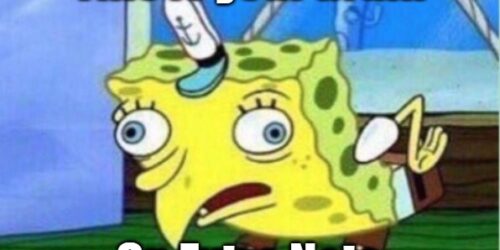Ben’s 2024 Year in Books

The overwhelming majority of the books I read in 2024 were covered on Words About Books. There were several books and novel-length manga I read that I did not make podcast content on. I thought it might be fun to go over them here. If the presence of so much manga surprises you, then you might not know that I do a lot of work with That Time I Got Reincarnated in The Same World As An Anime Podcaster. I’ve done more detailed write ups of some of these titles over there. For this post, I’ll give a very brief summary of the book, my general impressions, and whether or not I think you should read it as well. The list is in the order that I read them. Position on the list does not indicate quality.
The Drifting Classroom by Kazuo Umezu (or Umezz)
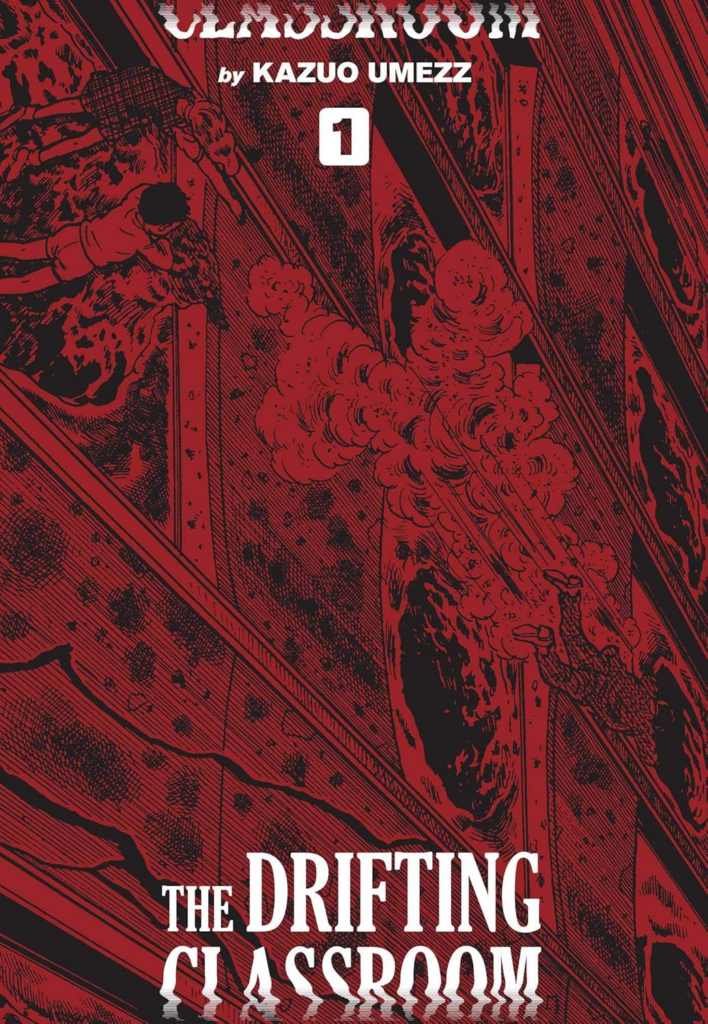
Summary
The Drifting Classroom is a classic apocalyptic horror manga from 1974 by Kazuo Umezu. In the world of horror manga Umezu is second only to Junji Ito. This is one of his most well-known series. It was hard to get in English for a long time, but in 2019, Viz Media published the series as a collection of three rather large volumes. I read all of them this year. The premise is simple: An elementary school is transported to a desolate wasteland. The only resources available for the children’s survival are the ones that were transported with them. How will they survive? Where are they? Without getting into spoilers, I can assure you that Umezu is a strange guy and this goes well and truly off the rails in a mostly-good way.
Should you read it?
It’s probably best to start with some content warnings. This is a horror comic about an elementary school. Lots of children die, often in graphic ways. This is a manga from the 1970’s. There’s more than a little sexism. While I enjoyed the series, I would probably only recommend it to fans of horror manga and/or fans of classic manga. This is not a good entry point into either of those genres for a more general audience. If classic horror manga sounds like something you’d be interested in, though, this is one of the better.
The Inklings by Humphrey Carpenter
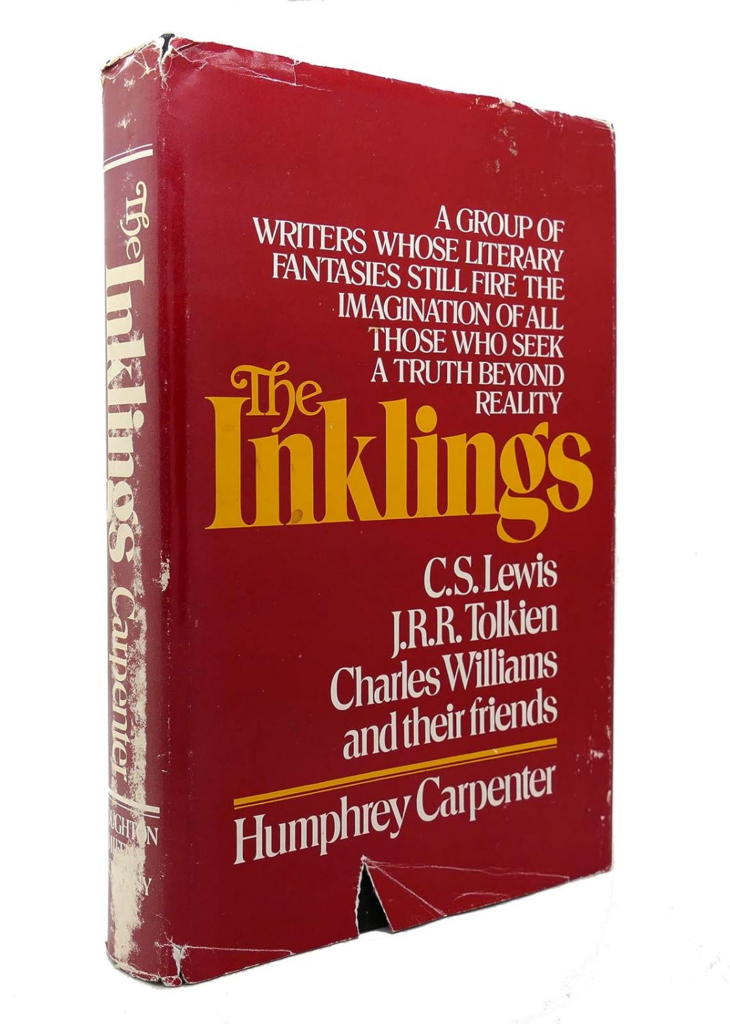
Summary
This was technically background reading for Talking About Tolkien, but I didn’t cover this book specifically. Humphrey Carpenter wrote Tolkien’s biography, edited The Letter’s of J.R.R. Tolkien, and wrote this book on The Inklings. The Inklings is the name given to an informal group of friends who had an interest in mythology, philosophy, and fairy stories. Most famously, C.S. Lewis and J.R.R. Tolkien were leading figures in this group. The Inklings has some interesting information on Tolkien, but since Carpenter had already done a proper biography of Tolkien, he focuses most of his attention elsewhere. I learned a lot about C.S. Lewis and Charles Williams that I had not known before.
Should you read it?
Only if you’re at all interested in the lives of any of those men mentioned above. If you’re interested in Tolkien, specifically, I would read Carpenter’s biography of him first. If you’re still interested, I would read The Letters of J.R.R. Tolkien. If you’re still interested after that, I would read this. If you’re interested in C.S. Lewis or Charles Williams then I would recommend this more highly.
Bomba! by Osamu Tezuka
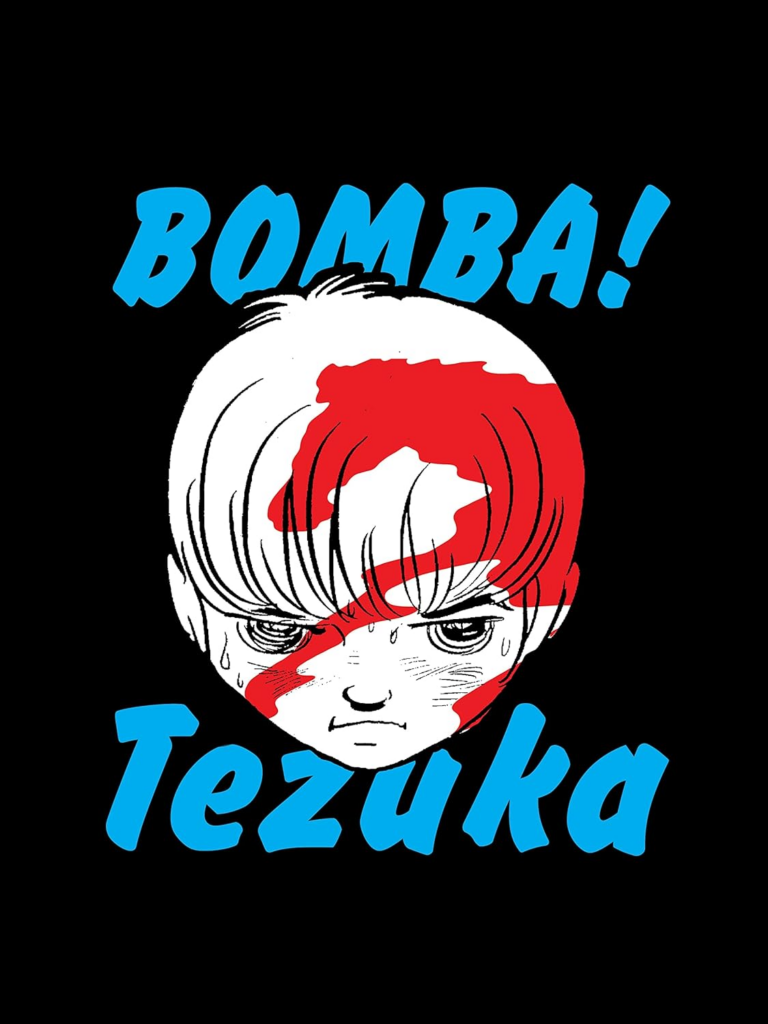
Summary
In 1970’s Japan. An angry junior high school student falls in love with his teacher. His life has been nothing but misery and abuse. She is the only thing that gives him hope. When his love for her is threatened, his rage takes on the form of a demonic ghost horse, the titular Bomba! A murder spree ensues, and unless something can be done, Bomba might destroy all of Japan.
Should you read this?
Osamu Tezuka is the God Father of Anime. He coined the term “manga”. It is impossible to overstate his influence on Japanese comics, cartoons, and art in general. He is the author of legendary properties like Astro Boy and Princess Knight. Bomba is, uh, not his best. But Tezuka is a genius, and even his worst stuff is still worth the consideration of anyone interested in the history of anime and manga. The art is incredible, though it may be a bit lost on younger audiences. The story is terrible. It’s honestly offensive. As a historical artifact, it’s a valuable window into Tezuka’s strange mind. I can really only recommend it in that context.
Tokyo These Days by Taiyo Matsumoto
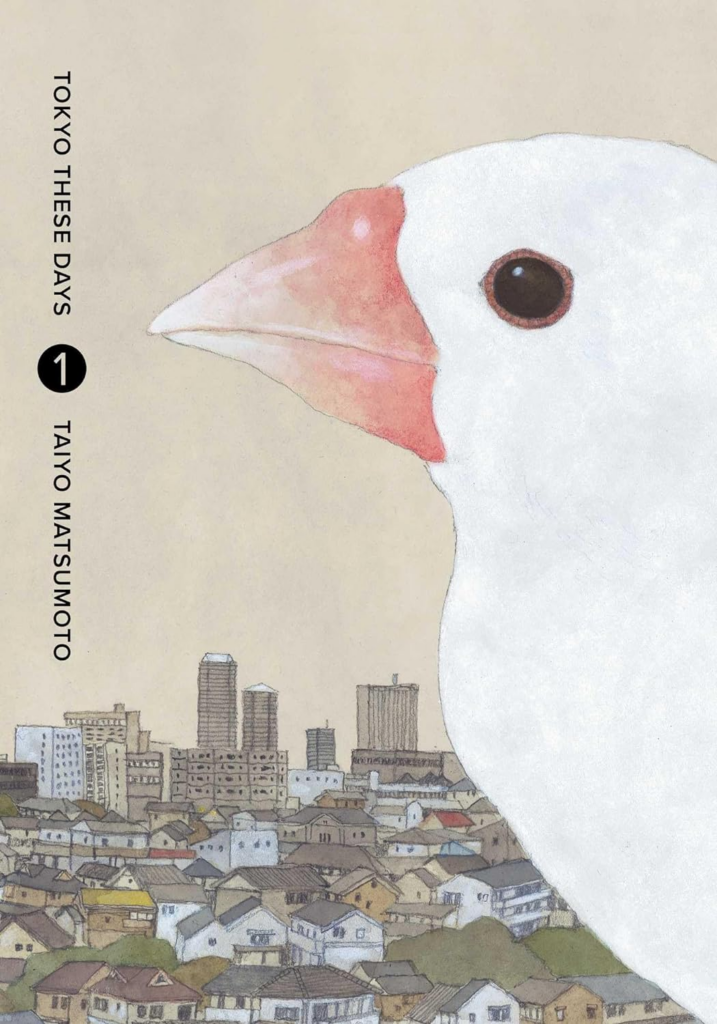
Summary
Never let anyone say that I only read manga from 80 years ago. Tokyo These Days ran from 2019-2023. It’s follows Shiozawa, an editor for a manga magazine who has retired after 30 years in the business. Shiozawa still has many good years left in him, but following the failure of a magazine he tried to launch, he feels it is his duty to withdraw. Retirement doesn’t suit Shiozawa, though. Unable to leave manga in the past, he travels Japan seeking out legendary creators who have been left behind by the manga industry. His plan is to launch a new independent magazine offering manga that is true art, not just the trend chasing crap that they put out these days. On the surface Shiozawa is the perfectly polite, always professional, salary man. As the series goes on, though, we begin to see the human being underneath the controlled facade. Will Shiozawa’s passion be enough to break through in our decadent modern age or will he fail again?
Should you read it?
Tokyo These Days falls into the category of what I would call “Literary Manga.” The story is an extremely slow burn. The art is impressionistic, more concerned with evoking emotion than being visually appealing. Like Shiozawa, it is desperately trying to be more than just another product churned out by an increasingly shallow industry. Like Shiozawa, it runs the risk of becoming a pretentious. Ultimately, like Shiozawa’s magazine, whether or not Tokyo These Days succeeds is up to the readers. In short: Yes, you should read it.
Seventy-Eight Degrees of Wisdom by Rachel Pollack
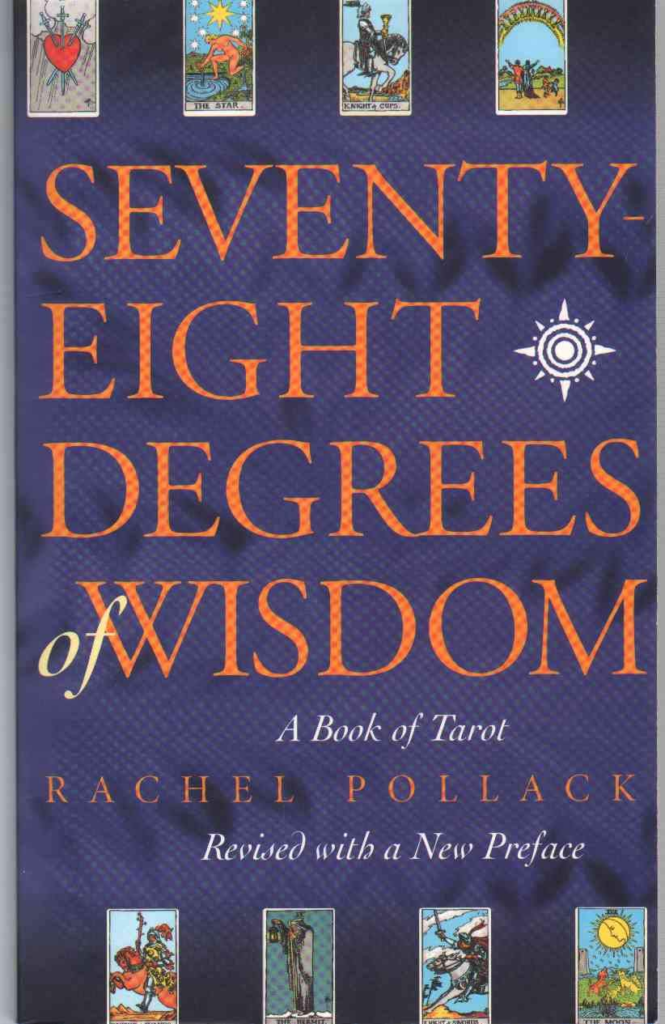
Summary
Seventy-Eight Degrees of Wisdom is a nonfiction book about The Tarot. It goes into great detail about the Rider Tarot deck. Pollack attempts to fuse modern psychology, mythology, and Jungian archetypes into her into her detailed analysis of the Rider cards.
Should you read it?
I’m no authority on The Tarot. Longtime listeners of the show will know that I have a passing interest in the occult, magic, and witchcraft. I read this book because I have an interest in Tarot readings. I know many people who are very into Tarot. While I do not believe that the cards are accessing a magical realm of profound knowledge, I have seen readings help people see their problems from a new or different angle and to think through them in a healthy and therapeutic way. With that said, Rachel Pollack is a little too wooey and a little too enamored with the Rider deck for my tastes. The books is disorganized, rambling, and often descends into numerology, which I do not find much value in. Back in the day, this may have been the best book on Tarot, but that is no longer the case. But again, take my opinion with a grain of salt. I’m just a tourist.
Solanin by Inio Asano
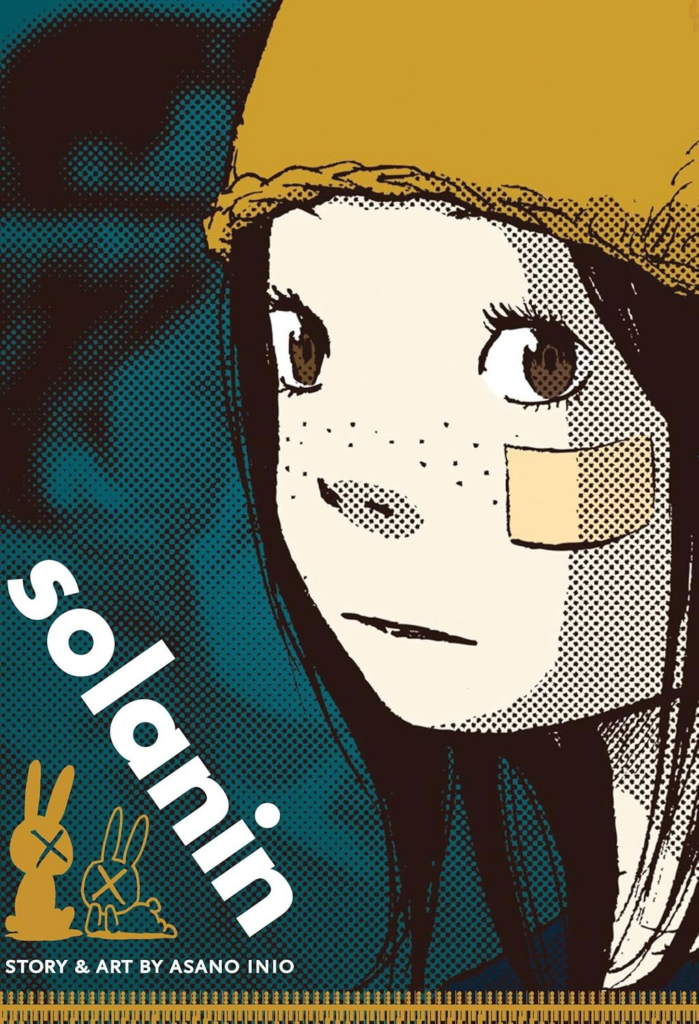
Summary
Aging millennials take a shot at fulfilling their dreams. It’s the most heartbreaking shit you’ve ever seen.
Should you read it?
Are you an aging millennial looking to have your heart broken? If so, then yes.
The Book of Lost Tales Part 1 by J.R.R. Tolkien (and Christopher Tolkien)
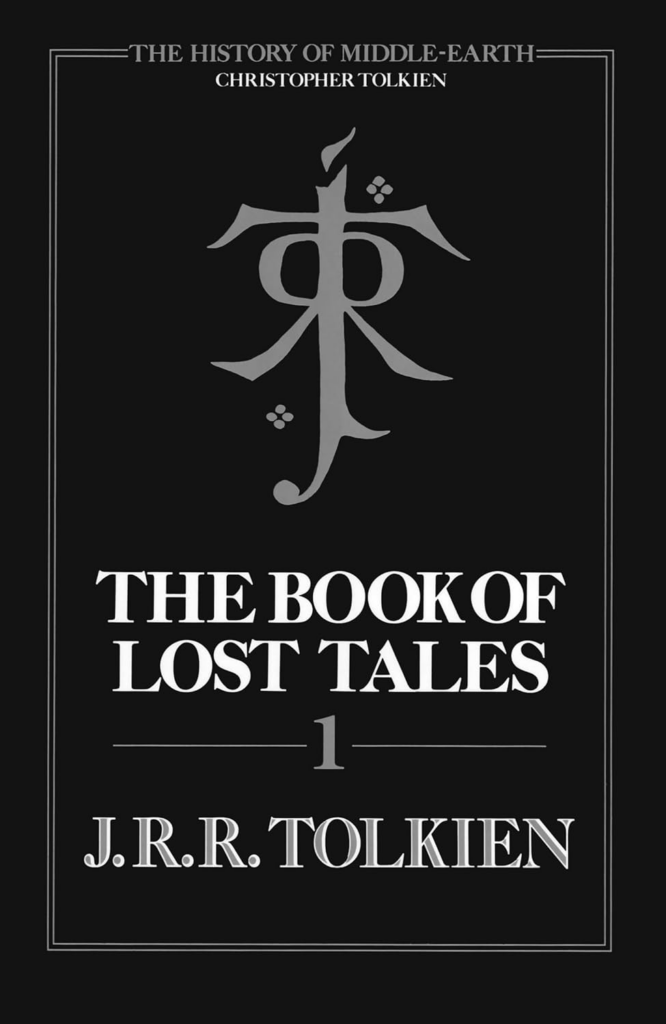
Summary
More background material for Talking About Tolkien here. After Christopher Tolkien put together the best version of The Silmarillion that he could, there were many questions about how much of that work was Christopher and how much was J.R.R. The Book of Lost Tales Part 1 begins an extensive look at the early writings of Tolkien’s mythos. Before The Silmarillion there was a concept for a book compiling the great stories of the The First Age. It was reworked several times and, ultimately, discarded. Here Christopher Tolkien presents these early drafts as intelligibly and consistently as is possible and offers his commentary and clarification.
Should you read it?
Are you a huge Tolkien nerd who has already read The Hobbit, The Lord of the Rings, and The Silmarillion? Are you ready to tackle a scholarly analysis of very rough drafts of stories you’ve mostly already read? Then yes. If that sounds like a bit much for you, then no.
Spooky Pennsylvania by S.E. Schlosser
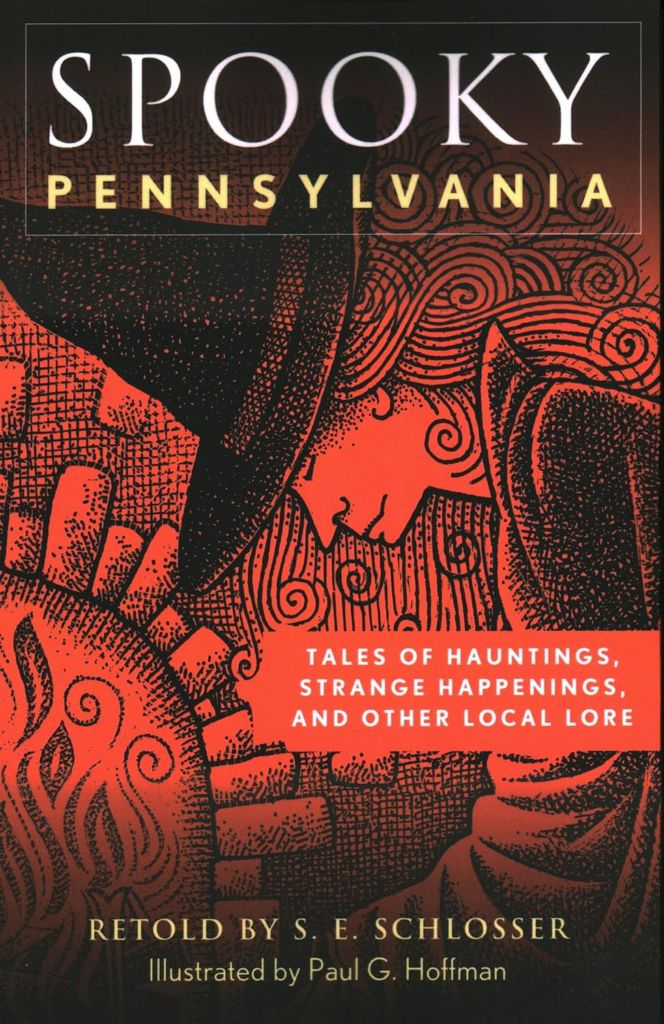
Summary
I have seen this book every Halloween in every store that sells books in my home state for years now. I finally picked it up. It is a series of bland, poorly written, poorly sourced campfire tales that take place around Pennsylvania.
Should you read it?
No. If you’re interested in folklore, the book does feature a source dump at the end with no way easy way to tell which sources are meant to have inspired which stories. The author also has no special talent for retelling these stories. My conclusion is that this is a coffee table book sold as Halloween decoration to Pennsylvanians who will never read a word of it. I will say, though, I got a good laugh every time a Pennsylvania Dutch Hedge Wizard showed up to save the day.
Mindfulness in Plain English by Bhante Gunaratana
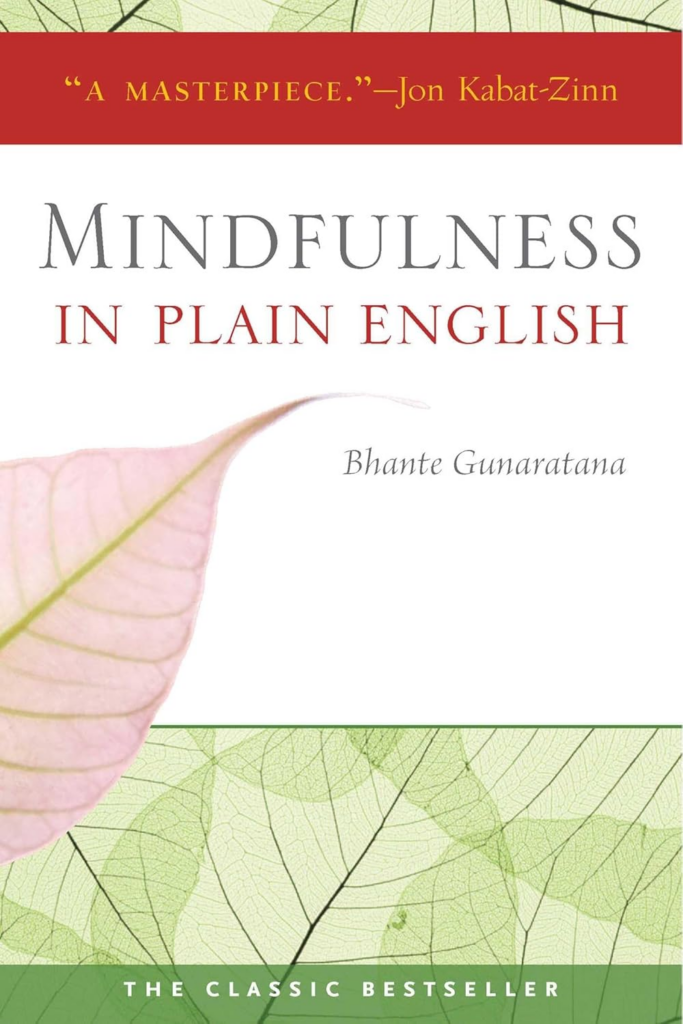
Summary
This is a reread for me. I’m fairly certain I’ve mentioned this book either on this podcast or on this blog before. It is simply the best book for a beginning meditator to read. It focuses specifically on Vipassana Meditation in the Therevada Buddhist tradition, but for the complete beginner, don’t worry about that stuff. Just sit down and breathe.
Should you read it?
If you’re interested in meditation at all this is a great place to start.
Zen Mind Beginner’s Mind by Shunryu Suzuki
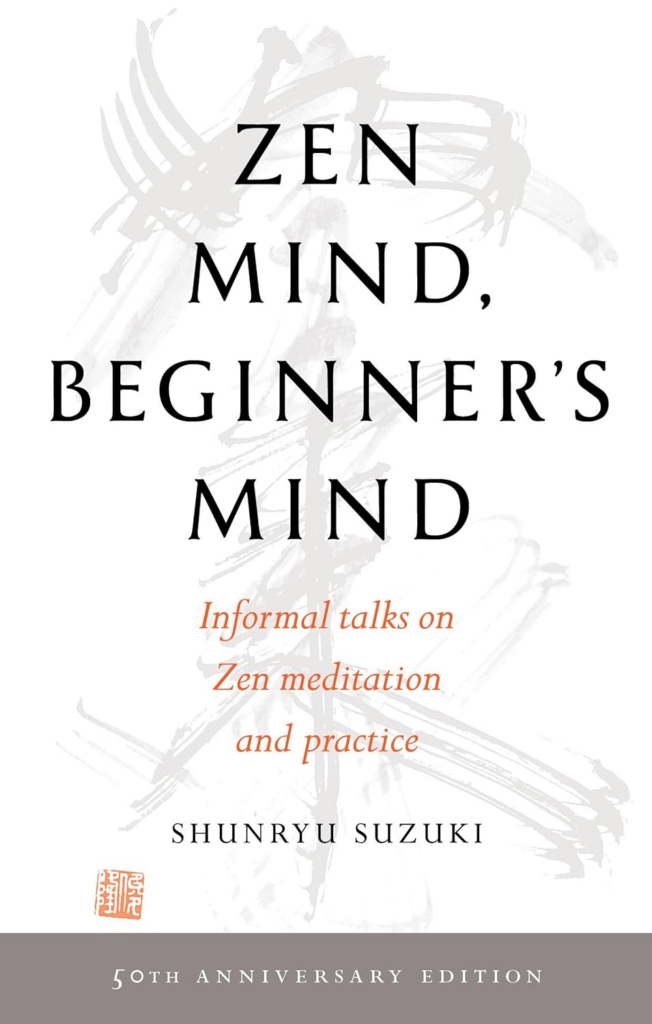
Summary
Shunryu Suzuki was not the first person to introduce the practice of Zen Buddhism to America, but he was arguably the most successful. He is the founder of the San Francisco Zen Center and has become a founding father of American Zen. This book collects some of his lectures, transcribed and edited for clarity and flow by his students. It gives the basics of Zen philosophy and the practice of Zazen.
Should you read this?
If you’re interested in Zen Buddhism, this is a very good starting point.
Hardcore Zen by Brad Warner

Summary
Brad Warner is the bass player for the Hardcore band 0Dfx (like “zero defects”) and a Buddhist monk. He lived in Japan for many years and worked for Tsuburaya Productions, the company behind Ultraman. I enjoy Warner’s approach to Buddhism. There’s a tendency for Buddhists to speak in soothing platitudes and circular paradoxes and Warner has a way of bringing that down to Earth, which can be a bit controversial. Hardcore Zen is his first book and, like the Hardcore Punk scene that inspired it, it’s a bit cringe in retrospect. Warner is aware of that and it comes through in his reading of the audio book. In spite of that, I found this book to be a fun read.
Should you read it?
I think some familiarity with the 80’s/90’s American punk scene is almost required to enjoy this one. A lot of the humor falls flat if you don’t get the references. If you do enjoy Buddhism and punk music, though. I recommend it
Sit Down and Shut Up by Brad Warner

Summary
I read two Brad Warner books this year. This one takes a deeper look into the work of Dogen, the ancient patriarch of the Soto Zen school. To say that Dogen’s writing is dense is the ultimate understatement. I must admit I’m not familiar enough with the original work to say if Warner does a good job of explaining it, but he did make me more interested in it.
Should you read it?
I honestly don’t know. If you’re interested in Dogen or Soto Zen, it might be worth checking out. It’s more of a long essay than a proper book.
The Poe Clan by Moto Hagio
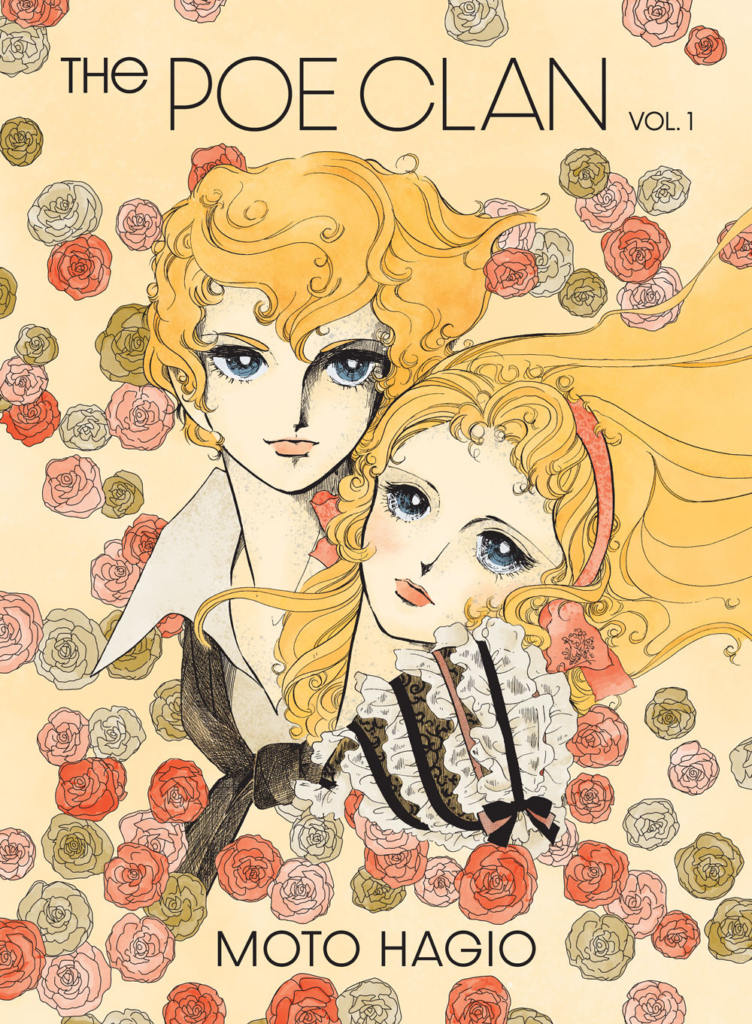
Summary
The Poe Clan is an absolute classic of Shojo manga and it is often credited as being one of the founding texts of the BL genre. I won’t go very deep into that (pun), but if you are concerned, it is purely romantic, never pornographic. I did technically do a podcast about this, but I loved it so much that I’m writing about it again. The Poe Clan follows the immortal Vampirnella (basically a vampire), Edgar Poe, on a non-linear adventure through the ages. It explores love, loss, and the suffering of the eternal. It has only very recently been made available in English and translator Rachel Thorn has done an incredible job bringing the drama to an English speaking audience.
Should you read this?
Emphatically Yes. If you are at all interested in vampire romance stories this is an absolute must.
The Bookmakers by Adam Smyth
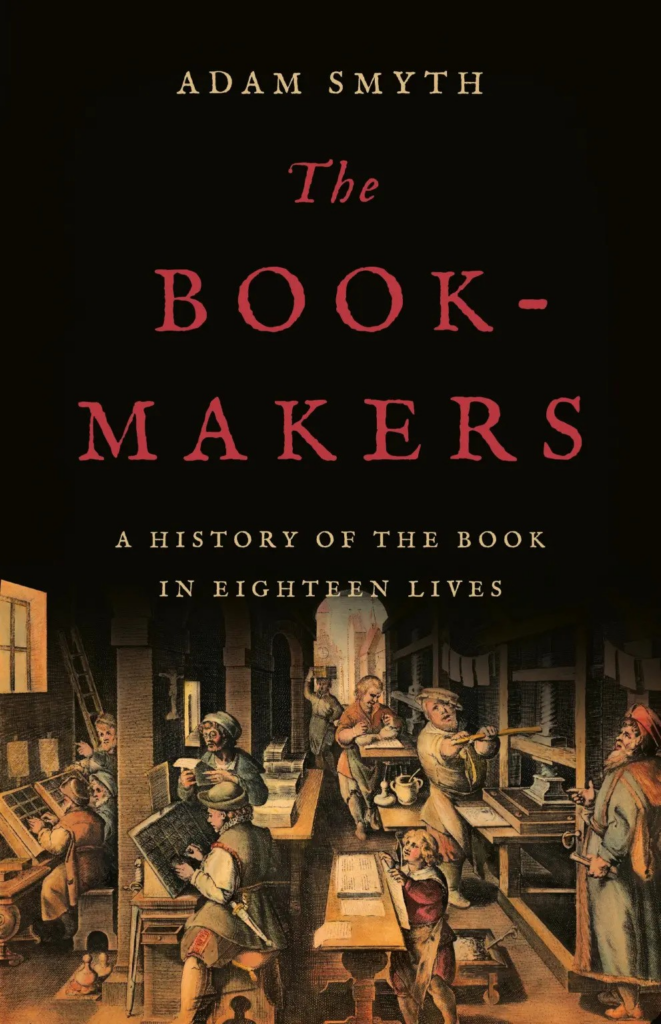
Summary
The Bookmakers is a story of the history of the book as a technology and as an art piece. It tells the story from the perspective of various real-life people who worked in the industry from the 1400’s to the modern age. From printers to binders to paper makers, it covers just about everything that is relevant to the physical construction of a book. It approaches this mostly from a British perspective, and entirely from a Eurocentric perspective. It does not cover the earlier evolution of books and paper in other parts of the world.
Should you read this?
I learned a lot but I found it a bit dry. I’m not sure that the method of telling the story through personal accounts worked. There is much that needs to be assumed about these people’s lives, and it often gets in the way of the information I actually wanted to know.
Nexus by Yuval Noah Harari

Summary
Harari became a legend in the world of pop-science books with Sapiens and Homo Deus. He’s back with a new book, this time tackling the subject of “Information Networks.” Nexus attempts to contextualize world history as the history of Information Networks. From oral traditions to written religious traditions to artificial intelligence, everything comes back to the information systems that shape our perceptions of reality.
Should you read it?
I’m not sure if Harari is punching above his weight now, or if he just happened to cover a subject I know a little something about, but I wasn’t very impressed with Nexus. I think Harari lacks a deep knowledge of the subject he’s trying to tackle. I think his conceptualization of an “Information Network” is a bit nebulous. There are many assumptions baked into his arguments that are not thoroughly addressed in the text. That’s before he talks about AI. Look, you’re not going to find a programmer more annoyed by AI hype than me. I am an easy audience for philosophical arguments for reasonable regulation of the AI industry. Unfortunately, it’s clear to me that Harari is spouting second hand wisdom on this topic. He desperately needs a co-author who has the technical expertise to properly explain things. I’m going against the grain here, but I would not recommend this.
Ashita no Joe by Asao Takamori and Tetsuya Chiba

Summary
Another classic manga made available in English for the first time! Ashita no Joe is one of the founding works in the Gekiga movement. It captured the angst of a generation so well that Joe was adopted by radical left wing movements as a symbol of their struggle in a post-war Japan. The comic follows Joe Yabuki, a wandering street-tough with a talent for fighting. Joe reluctantly falls under the wing of a down-and-out ex-boxer who believes Joe has what it takes to go the distance. Keep in mind this comic pre-dates Rocky by several years. Unfortunately, Joe’s inability to conform to authority lands him in a juvenile detention center. Will boxing be his way out? Does Joe really have the makings of a champion?
Should you read it?
This is an absolute classic of sports manga. The pacing of the story is a little slow. The art is not what many will have come to expect manga to look like. If you can get past the age of the material, though, this is absolutely worth reading. If you care about manga history at all, this is a must-read.
Conclusion
There you have it. That is everything I read in 2024 that I did not talk about on Words About Books. Hopefully you found at least some of this interesting.





